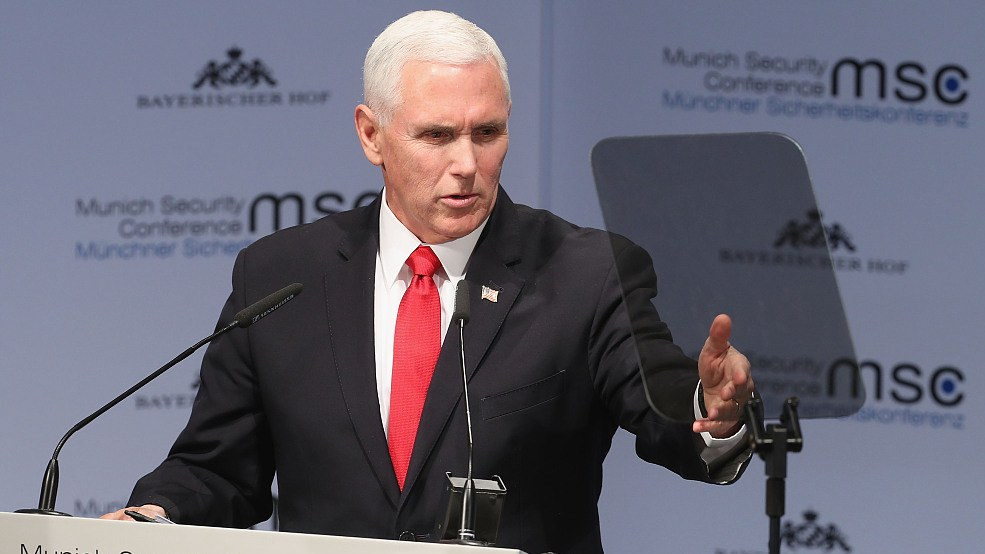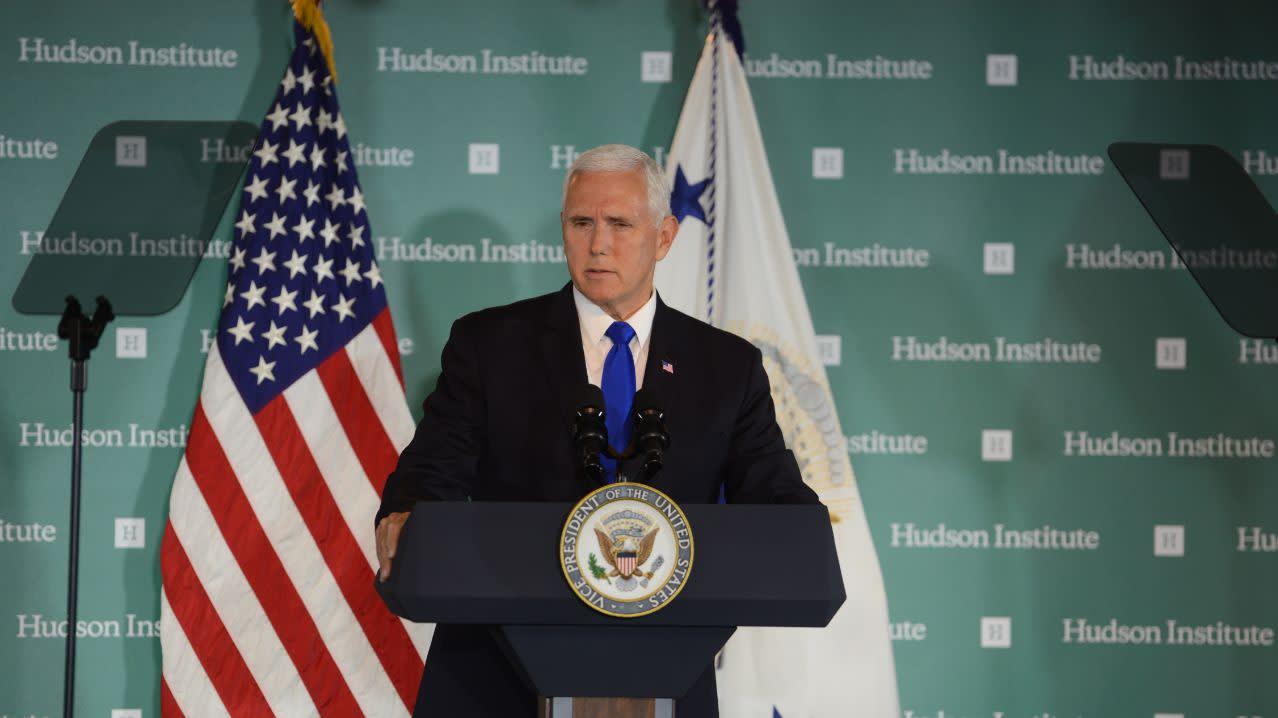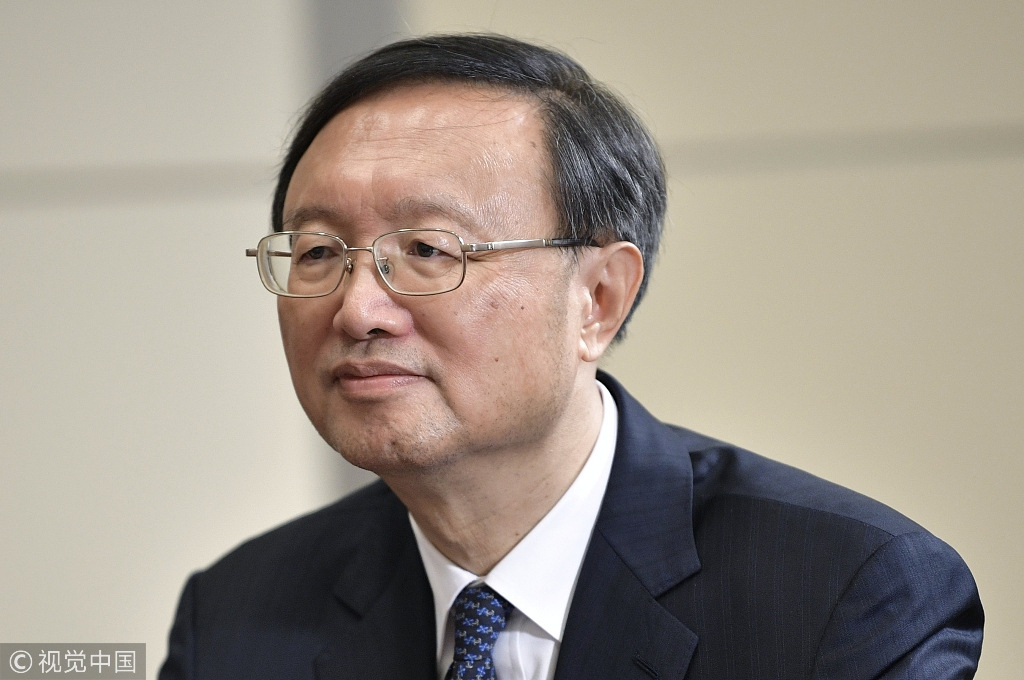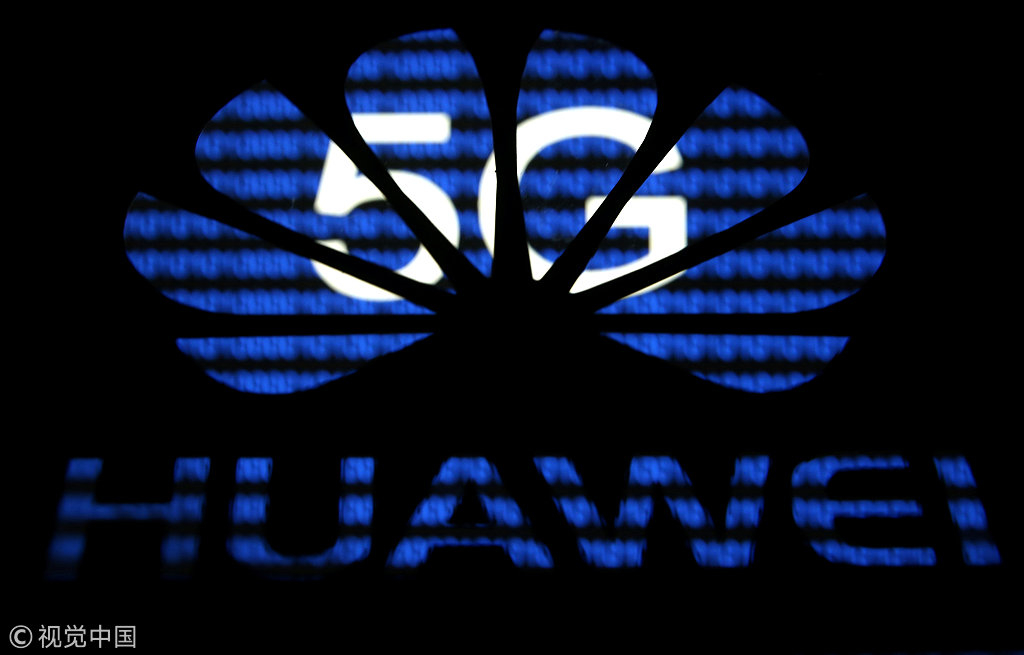
Opinion
12:54, 21-Feb-2019
Mike Pence sounds false alarm on China's national intelligence law
Updated
14:12, 21-Feb-2019
David Lee

Editor's note: David Lee is a consultant and author based in Beijing who works on cross-cutting themes of energy, health, international politics and international development. The article reflects the author's opinions, and not necessarily the views of CGTN.
Since last October when Vice President Mike Pence made his China speech at the Hudson Institute, America has suddenly found a new leading China pundit, though a false one.
Addressing the American domestic audience in a way reminiscent of Hollywood's Star War franchise, Pence used his Hudson speech to create a phantom menace lurking in the east, ready to use every way possible to attack, dethrone or replace the United States in world affairs.

U.S. Vice President Mike Pence addresses the Hudson Institute in Washington, DC, the U.S., October 4, 2018. /AP Photo
U.S. Vice President Mike Pence addresses the Hudson Institute in Washington, DC, the U.S., October 4, 2018. /AP Photo
Not resting on his laurels of inciting a new Cold War between the world's two biggest economies, Pence's punditry became more tech-savvy and moved into more detailed specifics as he appeared at the Munich Security Conference earlier this month to talk about China's technology threat.
Referring to the alleged danger of using any technology from Huawei, a Shenzhen, China-based global leader in ICT solutions and connectivity equipment, Pence said in his prepared text," Chinese law requires them to provide Beijing's vast security apparatus with access to any data that touches their networks or equipment."
"We must protect our critical telecom infrastructure, and the United States is calling on all our security partners to be vigilant and to reject any enterprise that would compromise the integrity of our communications technology or national security systems," added Pence.
To paraphrase, Pence sounded the alarm on China's National Intelligence Law that went into effect in June 2017. Pence was referring to Article 7 of the law stating that any "organization or citizen shall support, assist in and cooperate in national intelligence."
It must be noted that there has been no independent evidence to support the U.S. allegation about security threats posed by Huawei or Huawei equipment. Pence seemed to be quite satisfied that, by being tech-savvy and bringing up a clause of domestic law, he would offer some keenly needed arsenal against Huawei.
Of course, such alarming punditry has to be met with hard facts and good reason. Yang Jiechi, China's representative to the Munich Security Conference, did exactly that. Later, Chinese Foreign Ministry Spokesperson Geng Shuang in Beijing would go on lengths to further expose Pence's falsehood.

Yang Jiechi, a member of the Political Bureau of the Communist Party of China (CPC) Central Committee, during a meeting with Russian President Vladimir Putin in Sochi, Russia, August 15, 2018. /VCG Photo
Yang Jiechi, a member of the Political Bureau of the Communist Party of China (CPC) Central Committee, during a meeting with Russian President Vladimir Putin in Sochi, Russia, August 15, 2018. /VCG Photo
China's National Intelligence Law stipulates not only the obligations of organizations and individuals to lawfully support, assist and coordinate with the country's intelligence service, but also the obligations of the national intelligence service to carry out its work according to law, respect and protect human rights and uphold the legal rights and interests of individuals and organizations.
As rightfully pointed out by Geng, it is an internationally accepted practice to protect national security through legislation and require organizations and individuals to coordinate with a country's intelligence service. There are similar laws in the Five Eyes countries, namely the United States, the United Kingdom, Canada, Australia and New Zealand, as well as other western countries including France and Germany.
In refuting Pence, Geng then reiterated that the Chinese government's position to require Chinese companies to strictly abide by local laws and regulations when doing business overseas. All said Geng pointed to the hypocrisy of applying double-standards to China's domestic intelligence law.

VCG Photo
VCG Photo
I'd say the law called into question by Pence would look 100 percent normal and reasonable in some other countries than rising China. Maybe this sad situation reflects the true nature of Pence's punditry about China; that is, to accept the underlying logic that China is ready to harm American interests, mainly by using Chinese business as tools.
This thinking, I must say, is poisonous and dangerous. It's all the more unbelievable that such toxic and hazardous ideas are spoken out blatantly by the Vice President of the United States.
Interestingly, no echo has come from President Trump yet to Pence's anachronistic punditry reminiscent of Cold War-era belligerence against the former Soviet Union. Could this suggest any opportunity for damage control or even remedy, by reining in a sham pundit before things go too far? I do hope so.
(If you want to contribute and have specific expertise, please contact us at opinions@cgtn.com.)

SITEMAP
Copyright © 2018 CGTN. Beijing ICP prepared NO.16065310-3
Copyright © 2018 CGTN. Beijing ICP prepared NO.16065310-3